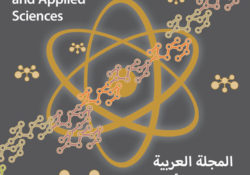tandfonline.com har udgivet en rapport under søgningen “Teacher Education Mathematics”: Abstract Abstract Given that the transition to university is a stressful experience, the present study aimed to assess how emotions affect eating behavior among students from the University of Bahrain. This was a cross-sectional study on 169 undergraduates, aged 17 to 36 years (average age, 20 ± 3 years), who completed an online survey that included questions based on the validated Emotional Appetite Questionnaire. The results showed that neither gender nor marital status had an effect on the reported eating behavior under different emotional states. Moreover, the majority of students reported eating less during negative emotional states (fear, sadness, anger, stress and depression). However, under loneliness and happiness, students tend to either sustain their food intake (45.6% and 55.0%, respectively) or to increase their… Continue Reading →
Like this:
Like Loading...
tandfonline.com har udgivet en rapport under søgningen “Teacher Education Mathematics”: ABSTRACT ABSTRACT This study examined how teachers support kindergarten children’s social and emotional development in everyday contexts. It used an ethnographic qualitative mode of enquiry, employing participant observations and semi-structured and structured interviews to examine the ways teachers optimize opportunities for supporting kindergarten children’s social and emotional development. Data were analyzed through collating common themes and bundling ideas. The data from this study were taken from a larger study, and reports on three of the original eight case studies. These three case studies were chosen for this article to specifically and succinctly articulate the findings. The data are discussed in terms of guided participation which supports the notion that guidance can occur anywhere, and that guidance can be either desirable… Continue Reading →
Like this:
Like Loading...
tandfonline.com har udgivet en rapport under søgningen “Teacher Education Mathematics”: ABSTRACT ABSTRACT There is a strong push to increase American students’ interest in Science, Technology, Engineering, and Mathematic (STEM) careers. However, minority and female students remain underrepresented in the STEM fields. Therefore, it is essential that we continue to examine the potential factors that both incite and dissuade STEM interest. We apply Expectancy-Value Theory (EVT) to examine STEM attitudes of predominantly low-socioeconomic status minority elementary school students over the course of a computing intervention. Furthermore, we integrate the digital inequality mental access conceptualization of ‘emotional costs’ into the EVT model in order to predict students’ negative STEM attitudes. Data are from a large-scale computing intervention that took place in a primarily minority, high poverty, urban elementary school district located in… Continue Reading →
Like this:
Like Loading...
eric.ed.gov har udgivet: Planning is an essential part of teachers’ work that has consequences for students’ learning. However, previous research shows that what it means to plan vary. To explore the meaning of planning from teachers’ point of view, and to open up for planning as a situated and emotional process, an interview study with Swedish mathematics teachers was conducted. In the analysis, the theoretical concepts, meaning, and emotions were used as analytical tools to fill the gap identified in the review of previous research about planning. Findings reveal planning as a varied process in which teachers draw on different resources. Actors other than teachers influence both how planning is done and the mathematics teaching that is planned for. Findings also reveal that feelings, such as joy, shame, and insufficiency,… Continue Reading →
Like this:
Like Loading...
eric.ed.gov har udgivet: We explored whether students’ perceptions of emotional and instrumental support provided by their mathematics teacher constitute separate dimensions of teacher support and how they are related. We also analyzed how students’ perceptions of emotional and instrumental support in math lessons relate to math anxiety, intrinsic motivation, help-seeking behavior, and effort. The participants were 309 Norwegian students in 9th and 10th grade. The data were analyzed by means of structural equation modeling (SEM). The results revealed that emotional and instrumental support constitute separate but strongly correlated constructs. Directly or indirectly, both emotional and instrumental support was related to all motivational constructs. The strongest relations were found for instrumental support. Additionally, instrumental support predicted lower levels of anxiety. One implication of this study is that teachers should aim at… Continue Reading →
Like this:
Like Loading...
eric.ed.gov har udgivet: Solving challenging math problems often invites a child to ride an “emotional roller-coaster” and experience a complex mixture of emotions including confusion, frustration, joy, and surprise. Early exposure to this type of “hard fun” may stimulate child’s interest and curiosity of mathematics and nurture life long skills such as resilience and perseverance. However, without optimal support, it may also turn off child prematurely due to unresolved frustration. An ideal teacher is able to pick up child’s subtle emotional signals in real time and respond optimally to offer cognitive and emotional support. In order to design an intelligent tutor specifically designed for this purpose, it is necessary to understand at fine-grained level the child’s emotion experience and its interplay with the inter-personal communication dynamics between child and his/her… Continue Reading →
Like this:
Like Loading...


